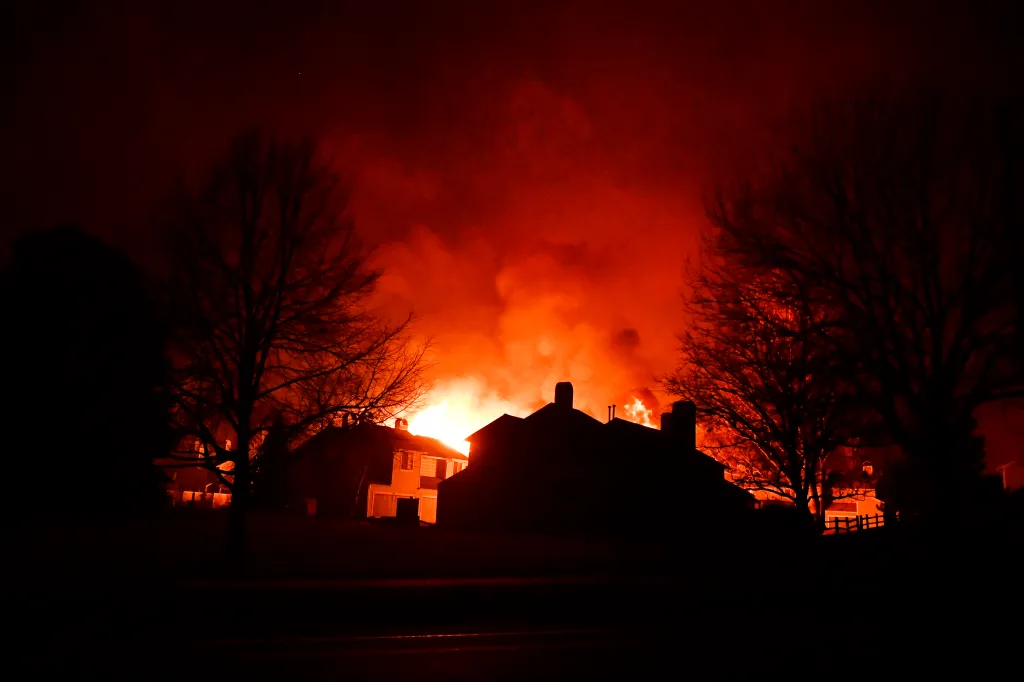
Xcel Energy and two telecommunications companies have reached a settlement agreement with the more than 4,000 people and companies that sued them in the wake of the 2021 Marshall fire in Boulder County, a lawyer representing the plaintiffs told The Denver Post.
The agreement was reached Tuesday, and lawyers were expected to appear in Boulder County District Court on Wednesday to notify Judge Christopher Zenisek that they have reached an agreement to settle the case, Gerald Singleton of the Singleton Schreiber law firm said.
“The terms of the settlement are going to be confidential,” Singleton said. “There is a settlement that has been reached for all of the groups involved.”
Xcel Energy did not immediately respond to The Post’s inquiries about the agreement.
A settlement avoids a complicated, two-month trial for all of those involved. Now the plaintiffs likely will receive some compensation and the utility companies avoid a potentially expensive loss if a hometown jury sided with the plaintiffs.
Jury selection was scheduled to begin Thursday morning and the trial was expected to last eight weeks as more than 4,000 plaintiffs, including homeowners, 200 insurance companies, the Target Corporation and others, attempted to pin blame for Colorado’s most devastating wildfire on the state’s largest utility company.
The trial would have been complex, with witnesses going into intricate detail about the science of fire behavior, electricity generation and telecommunications. Witnesses would have numbered into the hundreds; attorneys for the Target Corporation and the insurance companies filed a pretrial document that named 110 witnesses, including Xcel employees, members of the Twelve Tribes cult, and people who lost their homes. The plaintiffs and defendants planned to file a combined 6,000 pieces of evidence.
Billions of dollars in damages were on the line as Xcel’s lawyers hoped to convince the jury that the Twelve Tribes, the Mountain View Fire Protection District and the city of Boulder and Boulder County were each partially responsible. The insurance companies had claimed $1.7 billion in damages, according to a trial management order filed in late August.
The Marshall fire started on the morning of Dec. 30, 2021, during a windstorm in which gusts topped 100 mph, and it tore through neighborhoods in Louisville and Superior, killing two people and more than 1,000 pets while destroying $2 billion worth of property.
The investigation by the Boulder County sheriff’s and district attorney’s offices determined the fire had two starting points that merged to create the 6,000-acre blaze.
The first ignition point was on the property of the Twelve Tribes, a religious cult that owns a compound on Eldorado Springs Drive near Marshall Mesa.
Members had burned debris on Dec. 24, prompting a response by Boulder County law enforcement and firefighters. But those officials told Twelve Tribes members to bury the burn debris when they were finished and left the property without issuing citations or dousing the blaze with water, the investigation found.
However, strong winds on Dec. 30 blew the dirt cover off smoldering embers and sent them flying onto dry grasses in the surrounding neighborhood.
A second ignition started nearly 90 minutes later when hot particles sparking from a broken Xcel Energy electrical distribution system and unmoored lines from Teleport Communications America and Qwest Corporation hit the ground near a trailhead at Marshall Mesa, about 2,000 feet from the Twelve Tribes compound, the investigation found.
That fire took a different path before merging with flames from the Twelve Tribes property.
Ultimately, the district attorney chose not to file criminal charges against Xcel Energy or the Twelve Tribes for causing the blaze.
The civil case aimed to pin blame on Xcel and the two telecommunications companies whose equipment was located near the utility company’s electrical conductors and wires.
Xcel and the telecom companies denied they were responsible.
Xcel had prepared to argue in court that it was the Twelve Tribes’ fire that ravaged through the neighborhoods and that the wildfire was already burning through Superior before the utility lines sparked a second fire. Xcel also maintained in legal filings that the Twelve Tribes’ blaze created a large firebreak by burning all the brush and debris in its path and that any fire started by utility equipment would not have had enough fuel to reignite and continue burning.
Xcel’s attorneys also had said during court hearings and in legal briefs that the utility intended to pin some blame on the Mountain View Fire Protection District for not forcing the Twelve Tribes to extinguish the Dec. 24 fire with water. And the company would have argued that the city of Boulder and Boulder County were to blame because the governments, who shared ownership of Marshall Mesa Open Space, did not mow or otherwise control brush growth.
Xcel likely would not have been found entirely responsible for the fire and its $2 billion in damages because of the Twelve Tribes’ burn.



